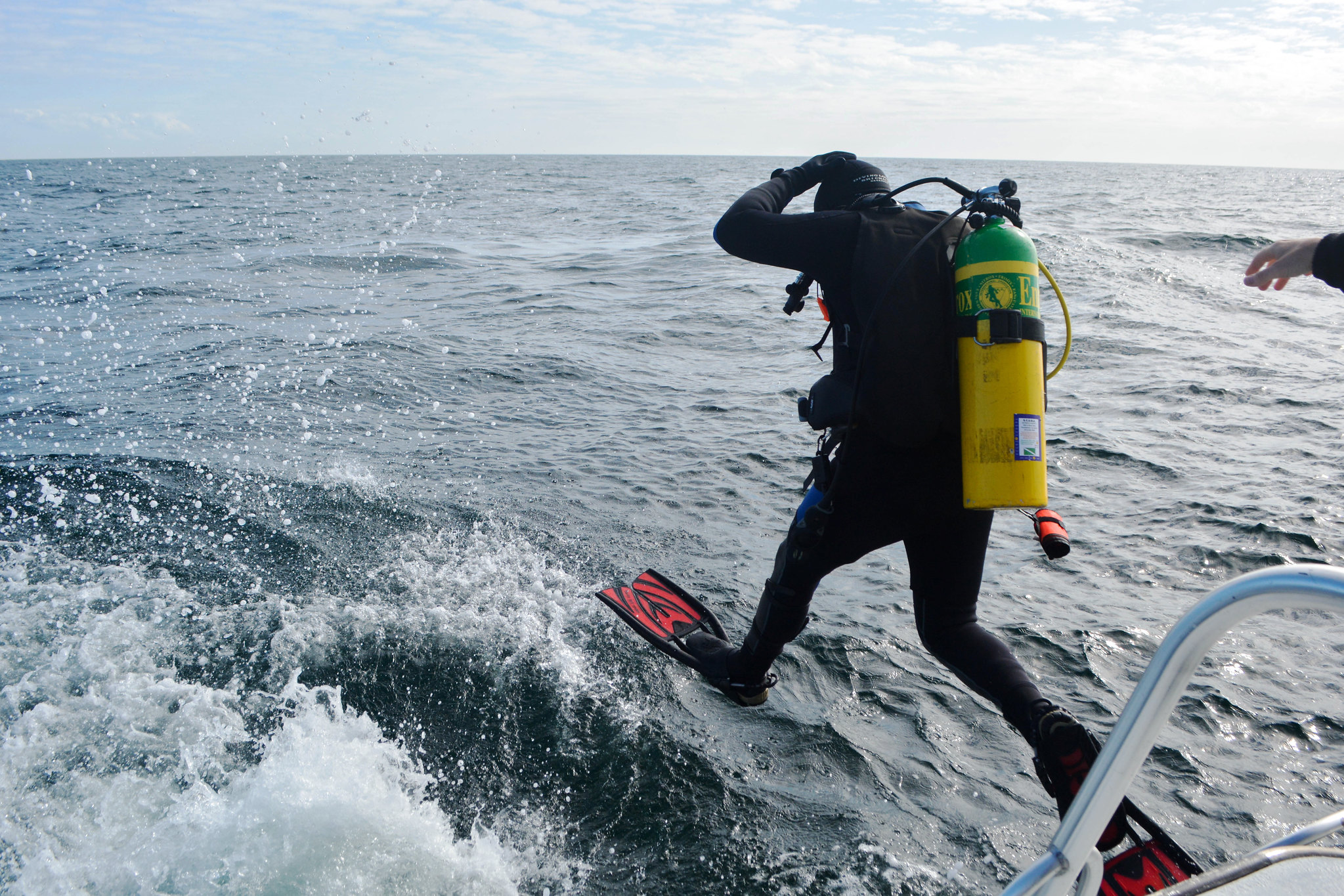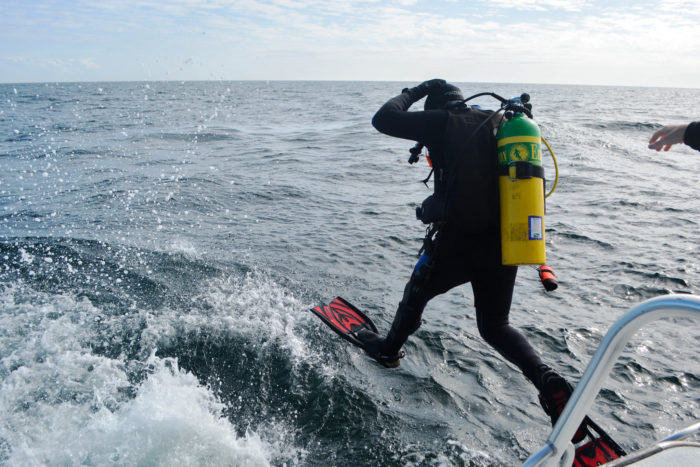
Careers in Marine Conservation: Research and Exploration

Photo credit: Alison Scott/NOAA
Calling all adventurers and explorers! Have you ever considered a career in marine science and conservation? Here are some of the research and exploration related careers available in the field and ways to help you prepare for each:
Science Diver
Did you know people SCUBA dive for a living? Science divers are specially trained to conduct research underwater, whether exploring caves with claustrophobia-inducing tunnel structures or surveying species abundance in coral reefs. Aspiring research divers in the U.S. should be advanced SCUBA, CPR, and First Aid certified, and must be prepared to complete a specialized science diver certification course through an American Academy of Underwater Sciences (AAUS) sponsored organization, which are generally schools and universities.
Mapping Expert
Cartographers rejoice — there is a need for mapping experts in marine science and conservation! We already know the names and locations of the world’s oceans, seas, and other large bodies of water, but the dynamic seafloor still needs mapping. Examples of important geographical and natural features below the surface include seamounts, canyons, movement in tectonic plates, reefs, critical habitat areas for marine species, and the boundaries of new and changing marine protected areas. Keeping maps updated and creating new ones helps everyone from ship captains to environmental management experts understand and navigate the marine environment. Aspiring mapping experts should plan to study geography, marine geology, data analysis, or other topics related to the field at the undergraduate level or higher and complete internships with host organizations.
Science Communicator
Scientific research and exploration findings aren’t always the easiest to understand if you’re not an expert in the field, making science communication a perfect career for storytellers who have a passion for connecting people to marine science and conservation. Science communicators might work for public or private organizations, and can deliver information to their audiences digitally or in person through channels like social media, websites, in-person outreach, news media, print materials, or film. Future science communicators should learn skills at the college level related to writing, marketing, digital media, storytelling, or public relations, and a background in their scientific field (in this case marine science) is helpful. Internships and experiences through a college or university can help refine these skills.
Citizen Science Leader
Careers in citizen science — research projects that rely on volunteers as active participants — can be a great way for marine science enthusiasts to get a dynamic job in the field. Blending public outreach and practical science research skills, citizen science allows for science literacy education, greater data collection and analysis capabilities, and the inclusions of fresh perspectives or underserved groups in traditional research. From research project design to volunteer coordination and coordination with science researchers, marine citizen science leaders have a variety of responsibilities and need a robust set of skills including: interpersonal communication, science research, and science education. Aspiring citizen science leaders can learn more about careers by participating in citizen science activities in their area, completing a degree in subjects like life science or education, and completing internships with organizations that host citizen science projects like Hawaiian Islands Humpback Whale National Marine Sanctuary, which conducts the annual Sanctuary Ocean Count each winter in Hawai’i.
Scientist/Researcher
There are many specialties within the field of marine science and conservation, ranging from biology to geology and from ocean chemistry to underwater archaeology. No matter what sparks your interest, plan to study hard — most research careers will require a graduate degree (master’s or doctorate) and experience conducting and/or publishing research. There are a number of ways to get into the field, including gaining work experience in marine science outside of academia, pursuing a graduate degree directly after completing a bachelor’s degree, completing postdoctoral fellowships, or serving as a research assistant for a university, private organization, or public organization.
Learn more about careers in Research and Exploration from NOAA’s Office of Ocean Exploration and Research here.
See current internships and job listings at the National Marine Sanctuary Foundation here.
